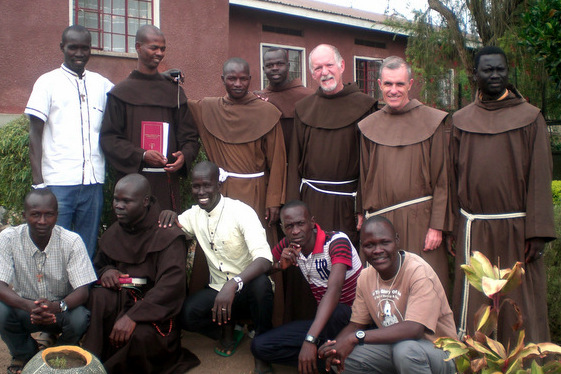Lenten practices in Africa

Br. Tim Lamb, third from right, top row, with some of the young friars in East Africa
Personal Giving
Last year Br. Tim Lamb asked young African friars in Nairobi, Kenya, what they wanted to do for Lent. In terms of sacrifice, “They wanted me to write a check.” He told them they had missed the point.
“They didn’t necessarily understand how it should be practiced,” says Tim, Secretary of Formation and Master of the House of Theology for the Province of St. Francis in Africa, Madagascar and Mauritius. “They just wanted to pass money around.”
He informed them, “It has to be a personal giving,” and suggested they expand their fast beyond Fridays for Lent. What if, he suggested, “Each week we have a dinner without animal protein,” then tally the money they saved at the end of 40 days. With 27 men in the house, that would add up.
“I think the idea was received well,” Tim says. “The question was, who do we give it to?” Not the beggars at the front gate, they decided. That would create a culture of dependence, and those people were already being fed if they asked for food.
“The friars identified a person they’d met at the market where they were buying fruits and vegetables.” Dealing with cancer, she was struggling to keep her business going. “It was decided to give her the money we saved by not eating meat once a week.”
The amount they saved was $20,000 Kenyan Shillings, about $200. Presented with the money, “The woman was surprised, thrilled, touched and thankful,” Tim says. For the young friars, “It was an example of taking what they’d been taught and making it a real sacrifice.”
This story was first published in the SJB News Notes
Posted in: Lent and Easter, Missions
